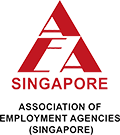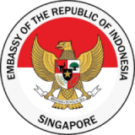As Singapore’s most reliable maid agency, Hire A Maid in Singapore understands that successful employer-helper relationships extend beyond daily tasks. Many domestic helpers arrive in Singapore with limited exposure to modern banking systems and financial planning tools, creating an opportunity for employers to make a lasting positive impact on their helper’s life.
Supporting your maid’s financial literacy isn’t just compassionate, it’s practical. Financially secure employees are more focused, less stressed, and more committed to their roles.
In this article, we will explore how Singapore employers can guide their domestic helpers toward financial independence and security.
What Are Some Ways Employers Can Help Their Maids With Financial Management
1. Start With Money Conversations
Begin with an honest, judgment-free discussion about finances. Many Myanmar helpers and Indonesia helpers hesitate to discuss money matters due to cultural differences or fear of overstepping boundaries. Create a welcoming environment by asking about their financial goals. Are they saving for their children’s education, supporting elderly parents, or planning to start a business back home?
Understanding their priorities helps you provide relevant guidance. Some maids may need immediate budgeting help, while others might benefit from long-term investment advice. These conversations also demonstrate that you value them as individuals with aspirations beyond their current employment.
2. Offer To Help Set Up A Bank Account
Singapore’s banking system can seem daunting to newcomers. Many domestic helpers initially rely on cash transactions or informal money storage methods, which pose security risks. Employers can offer to accompany them to open a POSB or DBS account in Singapore, both banks offer basic savings accounts with minimal requirements.
Having a local bank account enables direct salary deposits, provides access to ATMs islandwide, and establishes their financial presence in Singapore. This foundation becomes crucial if they need to access other financial services or build a credit history for future needs.
3. Introduce Basic Budgeting Tools
Technology can simplify financial management significantly. Seedly, a popular Singapore-based app, offers budgeting tools and financial content in multiple languages. For those preferring traditional methods, suggest simple expense tracking notebooks or printable budget templates.
Start with the 50/30/20 rule: 50% for necessities, 30% for remittances and personal expenses, and 20% for savings. Adjust these percentages based on their specific circumstances, but emphasize the importance of allocating something for personal savings, even if small initially.
4. Encourage Regular Savings Habits
Consistent saving habits matter more than large amounts. Encourage your helper to save immediately upon receiving their salary, before other expenses arise. Even $100 monthly accumulates to $1,200 yearly, a substantial emergency fund or future investment opportunity.
5. Support Access To Financial Literacy Resources
Singapore offers numerous financial education resources. The Monetary Authority of Singapore (MAS) provides free financial literacy materials, while organizations like the Centre for Domestic Employees (CDE) and Migrant Workers’ Centre conduct workshops specifically for foreign domestic workers.
Share YouTube channels or online courses available in their native languages. Many Indonesian, Philippines and Myanmar financial educators create content specifically for overseas workers, addressing common challenges like currency conversion, remittance optimization, and long-distance financial planning.
6. Teach The Importance Of Emergency Funds
Singapore’s high cost of living makes emergency funds particularly crucial. Medical expenses, unexpected travel needs, or temporary job loss can create significant financial stress without proper preparation.
Help them calculate appropriate emergency fund amounts, typically 3-6 months of living expenses. In Singapore, this might include accommodation deposits, food, transportation, and communication costs. Frame this as protection for their family support system, not selfish saving.
7. Discuss Responsible Remittance Practices
Remittances represent major financial commitments for most domestic helpers in Singapore. While family support is admirable, help them understand sustainable practices that ensure long-term capability to provide assistance.
Discuss cost-effective remittance services popular in Singapore: Wise (formerly TransferWise) offers competitive exchange rates, while Singtel Dash provides convenient mobile transfers. Compare fees and exchange rates to demonstrate how choosing the right service increases the amount reaching their families.
Discuss creating remittance budgets that leave room for personal savings and emergency funds. This isn’t reducing family support, it’s ensuring sustainable, long-term assistance capability.
8. Set An Example With Transparent Practices
Model professional financial behavior through your employment practices. Pay salaries punctually on agreed dates, provide clear payment records, and maintain transparent communication about any deductions or bonuses.
9. Consider Giving Non-Cash Support For Essentials
Reduce your Myanmar helper or Indonesian helper financial burden by providing necessities that don’t affect their savings ability. Transport cards for MRT/bus travel, basic toiletries, or meal allowances help stretch their salaries further while teaching them to distinguish between needs and wants. However, ensure this support supplements fair wages rather than replacing appropriate compensation. Singapore’s Ministry of Manpower sets minimum salary requirements, non-cash support should enhance, not substitute, proper payment.
10. Encourage Goal-Setting For Long-Term Stability
Help them articulate specific long-term objectives beyond their current employment. Whether planning to open a business, purchase property, or fund education in their home country, assist in creating realistic timelines and savings strategies.
Break large goals into manageable monthly targets. For example, saving for a $10,000 business investment over three years requires approximately $280 monthly. This concrete approach transforms abstract dreams into achievable plans.
Celebrate progress milestones to maintain motivation. Regular check-ins about goal progression show genuine interest in their success and provide opportunities for guidance adjustments.
11. Create A Safe Space For Financial Questions
Establish an environment where financial discussions feel comfortable and judgment-free. Regular informal check-ins about your helper financial wellbeing demonstrate genuine care beyond work performance.
Be patient with questions that seem basic, concepts like compound interest, insurance, or investment principles may be completely new. Your willingness to explain and re-explain builds their confidence to seek help when needed.
Consider connecting them with other domestic workers in Singapore who’ve successfully navigated Singapore’s financial systems. Peer learning often proves highly effective for building financial confidence.
The Hire A Maid Commitment!
At Hire A Maid, our maid agency in Singapore believes successful employer-helper relationships benefit everyone involved. When domestic helpers achieve financial security and literacy, they become more confident, motivated employees while better supporting their families back home.
Supporting your helper’s financial journey requires patience and commitment, but the rewards for both parties are substantial. Start with one or two areas where you can make an immediate impact, then gradually expand your support as their confidence grows.
Your guidance today creates positive ripple effects extending far beyond your household, potentially transforming entire families’ financial futures.
As Singapore’s reliable maid agency, we encourage all employers to consider their role in fostering financial empowerment and independence. By implementing these strategies, you’re not just hiring help, you’re investing in human potential and creating meaningful change in someone’s life journey.
Conclusion
Empowering your domestic helper with financial knowledge is more than an act of kindness. It’s a step toward sustainable, long-term success for both employer and helper. By taking the initiative to foster financial literacy, you help your helper build a secure future while enhancing their focus, morale, and job satisfaction. Whether it’s through opening a bank account, encouraging savings habits, or supporting long-term goal planning, every small step you take contributes to a more stable and confident individual.
At Hire A Maid, we believe that a well-supported domestic helper is a cornerstone of a harmonious household. Financial empowerment is not just an added benefit. It’s an essential part of responsible, modern employment. Together, let’s raise the standard of care and respect in the domestic employment landscape, one financially empowered helper at a time.
Ready To Find Your Perfect Maid?
With over 250,000 foreign domestic workers now employed in Singapore, finding the right Myanmar helper or Indonesian helper requires expertise, diligence, and genuine care. Starting your journey toward household harmony is simple.
Contact our team today for a free consultation!






